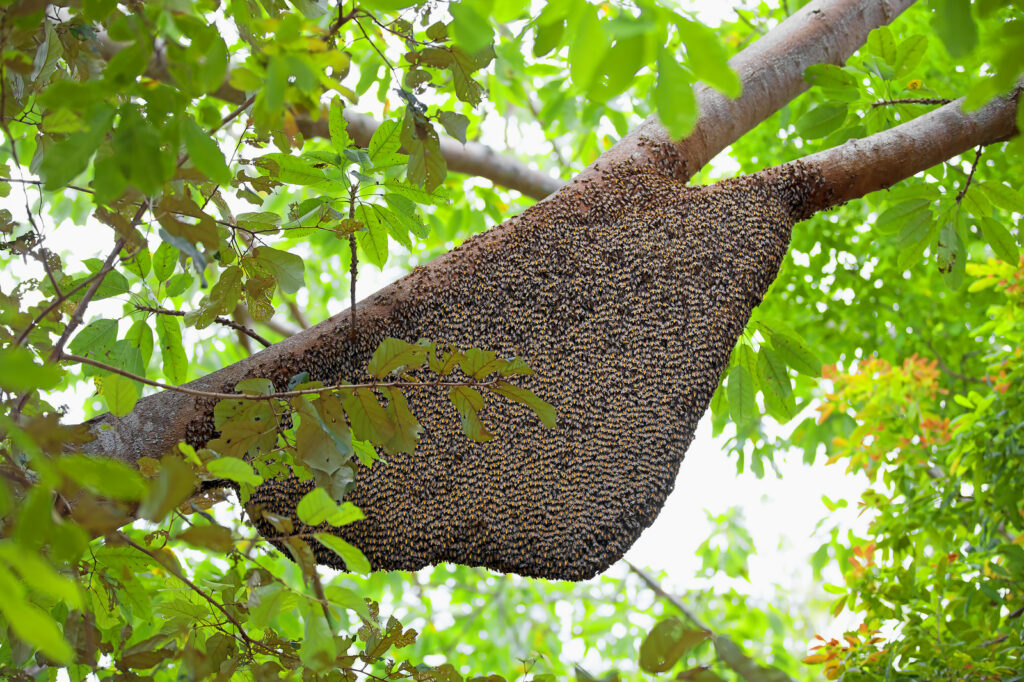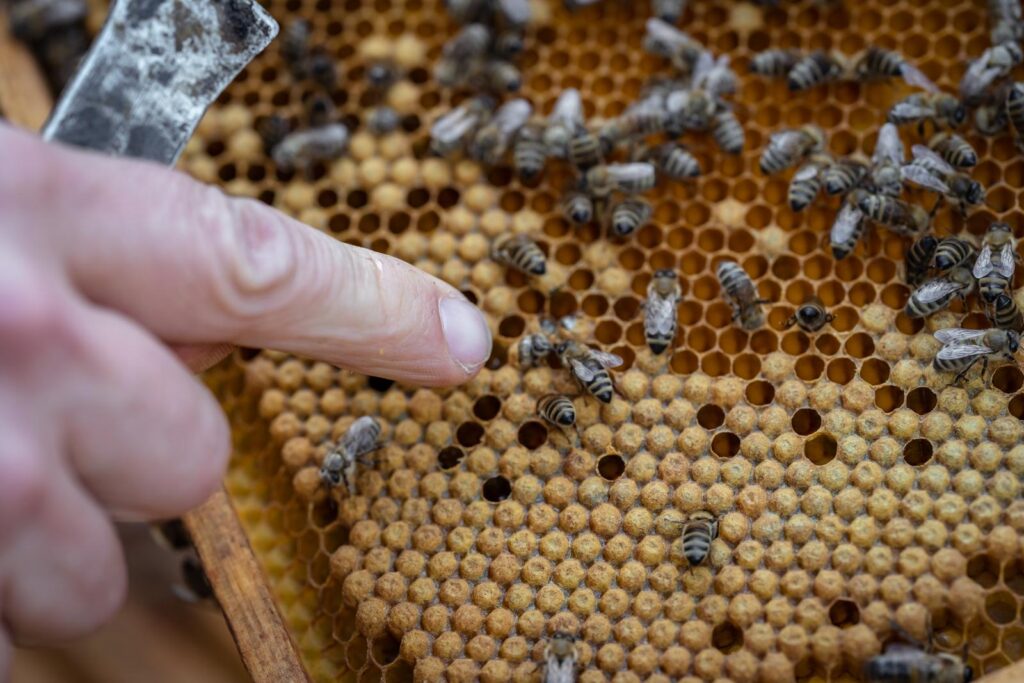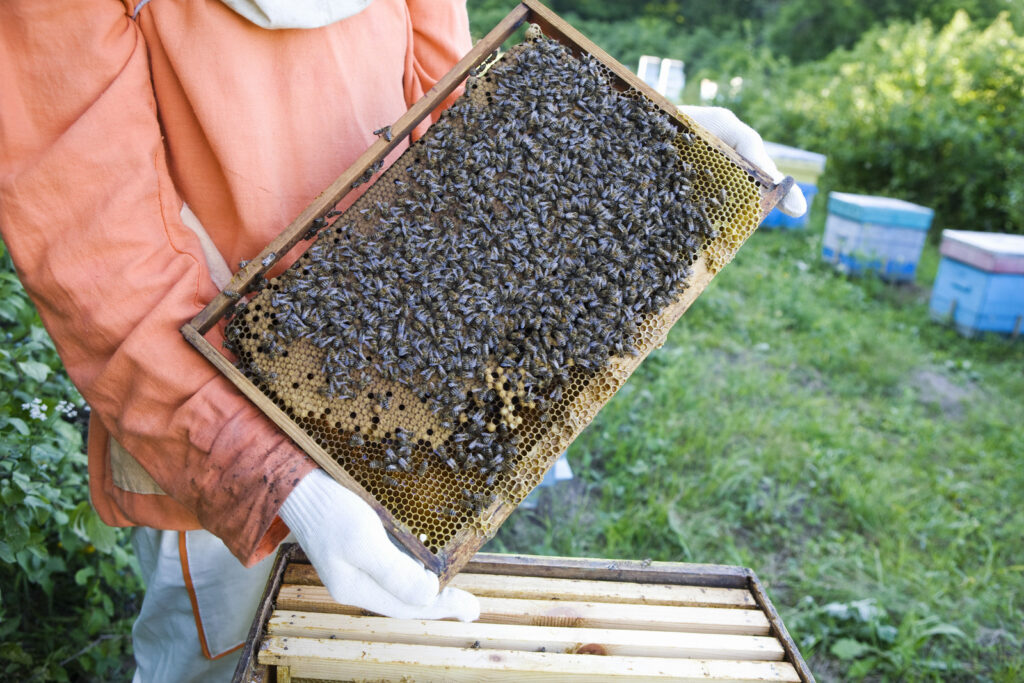The fact of the matter is that we need bees on this planet for human life to continue. The sad and ugly truth, however, is that bees are dying out at a pace bee experts are not sure we can recuperate from if things do not change quickly.
But you can help make a difference! Yes, even you who knows nothing about bees or who cares but does not believe they can make an impact. Contrarily, you can help save the bees by educating yourself and others on what, how and why bees are so important and integral to the continuation of life as we know it.
Another fundamental way that we can save the bees is through encouraging more rural and urban beekeeping start-ups. Read this article to find out the importance of bees and the importance of beekeeping!
The World Needs Bees!
Did you know that there are well over 20,000 species of bees globally, each offering a fundamental and unique contribution to our planet? However, all species of bee contribute one necessary skill essential to human survival: they are pollinators.
Pollinators are vital for the pollination and reproduction of all crops, including but not limited to vegetables, fruits, nuts, seeds, tea, and coffee. Moreso, bees are relied on for the growth of at least 84% of crops that humans consume daily! If bees were to disappear, humans would simply not produce enough food.
But, even though bees are essential to our natural environment and food production systems globally, it has been reported that in both Europe and the United States, bees populations are declining by between 30% and 50% annually!
This decline is accredited to climate change, herbicide and pesticide usage, parasites, disease, and habitat losses – to name just a few. So, what is the importance of beekeeping in aiding to preserve our bee populations? Let us explain!
What is the Importance of Commercial Beekeeping?
The answer to this question may seem obvious, but it is necessary to discuss, nonetheless. Beekeeping is important to help increase the bee population. The skill is however becoming rarer and rarer and there appears to be a significant drop in the number of beekeepers worldwide.
Moreso, beekeeping is a significant source of income and an important part of the economy for farmers. Bees play a significant role in crop yields and therefore is a central factor of agricultural production.
Additionally, the quality and quantity of crop yields are highly reliant on the presence of honeybees. Commercial beekeeping which involves renting out bee colonies to pollinate agricultural crops adds up to $20 billion of economic value to American agriculture annually. A trend seen throughout agricultural markets globally!
But not only does a decline in bee populations put agricultural production in jeopardy, it also severally effects the ecosystem! The presence of bees helps maintain an ecological balance by helping other animal and plants species’ well-being. Without bees to pollinate plants, a huge range of plants could go extinct and the animals who rely on these plants for food along with them. This diversity is extremely important to protect our natural eco-systems. Therefore, without bees, the biodiversity of our natural ecosystems would greatly suffer.
So…we know why commercial beekeeping is important. But what is the importance of beekeeping in urban areas? We will answer this next!
What is the Importance of Urban Beekeeping?
You may be wondering, “How does starting my own bee colony help save the bees?” or even, “Can starting my own colony, even on a small scale, make an impact on this global crisis?” The answer to the second question is an astounding, “YES!” The answer to the first question is a bit longer. Let us elaborate!
We will begin with the answer to “How does starting my own bee colony help save the bees?” The practice of beekeeping in your own backyard or garden is known as “urban beekeeping”. There has been a remarkable rise in this kind of beekeeping in recent years which has actually led to exciting results in terms of helping out our struggling bee populations.
It has been found that urban beekeeping has remarkable success in not only growing bee populations, but also in keeping bee colonies healthy and thriving. This is mainly because keeping bees in towns and cities means keeping bees away from harmful herbicides and pesticides used in more rural, agricultural settings which the bees would be exposed to when they leave the hive to pollinate.
It is important to remember that bees are foragers and collect resources from their natural surroundings. Therefore, keeping the bees near urban parks and natural gardens gives the bees a source of pesticide-free resources to feed on.
It is necessary, however, to note that not all cities are appropriate for urban beekeeping as they simply do not have the natural resources to feed and support their own local honeybees. Therefore, make sure you do your research before introducing your bees to any urban area, especially if you do not have space to provide them with enough food in the form of flowers and plants in your own garden.
Moreover, you might require a special permit or special permission to keep bees in your urban area. Always make sure you do complete and proper research on this subject before you start your urban beekeeping venture. (We have covered this in earlier blogs. Make sure you check them out for more information.)
Consequently, we see that even small-scale beekeeping makes a huge impact in helping our struggling bees.
To summarise…
The importance of beekeeping, both commercial and urban, cannot be overstated! Bees are essential to human survival. Without bees, humans, animals, and plants would cease to exist. Commercial beekeeping ensures that bee populations are maintained, bio-diversity thrives, and that agricultural production is sufficient to feed us all.
But you do not have to commercially bee keep to make a difference! Urban beekeeping has been on the rise and has proven to significantly help our bee populations too! Keeping bees in your backyard is definitely a viable option if you’re looking to take part in the efforts to preserve our dwindling bee populations.


